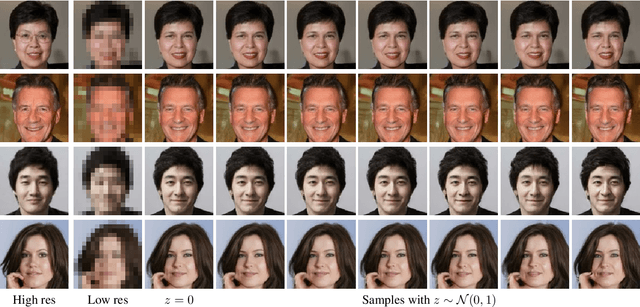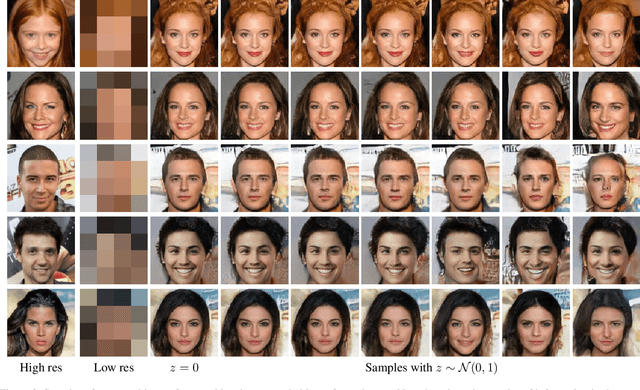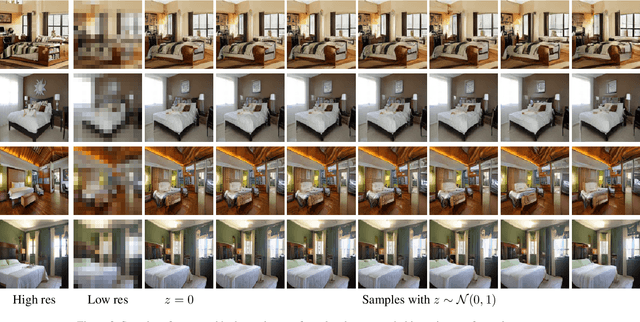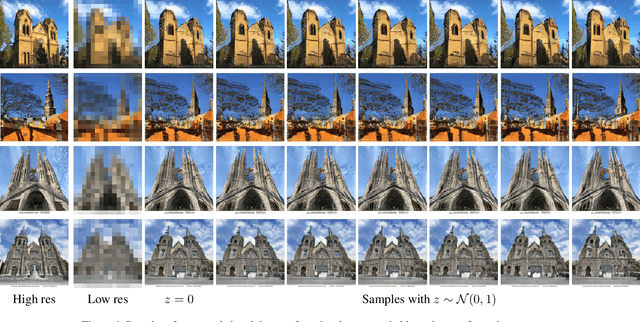Creating High Resolution Images with a Latent Adversarial Generator
Paper and Code
Mar 04, 2020



Generating realistic images is difficult, and many formulations for this task have been proposed recently. If we restrict the task to that of generating a particular class of images, however, the task becomes more tractable. That is to say, instead of generating an arbitrary image as a sample from the manifold of natural images, we propose to sample images from a particular "subspace" of natural images, directed by a low-resolution image from the same subspace. The problem we address, while close to the formulation of the single-image super-resolution problem, is in fact rather different. Single image super-resolution is the task of predicting the image closest to the ground truth from a relatively low resolution image. We propose to produce samples of high resolution images given extremely small inputs with a new method called Latent Adversarial Generator (LAG). In our generative sampling framework, we only use the input (possibly of very low-resolution) to direct what class of samples the network should produce. As such, the output of our algorithm is not a unique image that relates to the input, but rather a possible se} of related images sampled from the manifold of natural images. Our method learns exclusively in the latent space of the adversary using perceptual loss -- it does not have a pixel loss.
 Add to Chrome
Add to Chrome Add to Firefox
Add to Firefox Add to Edge
Add to Edge